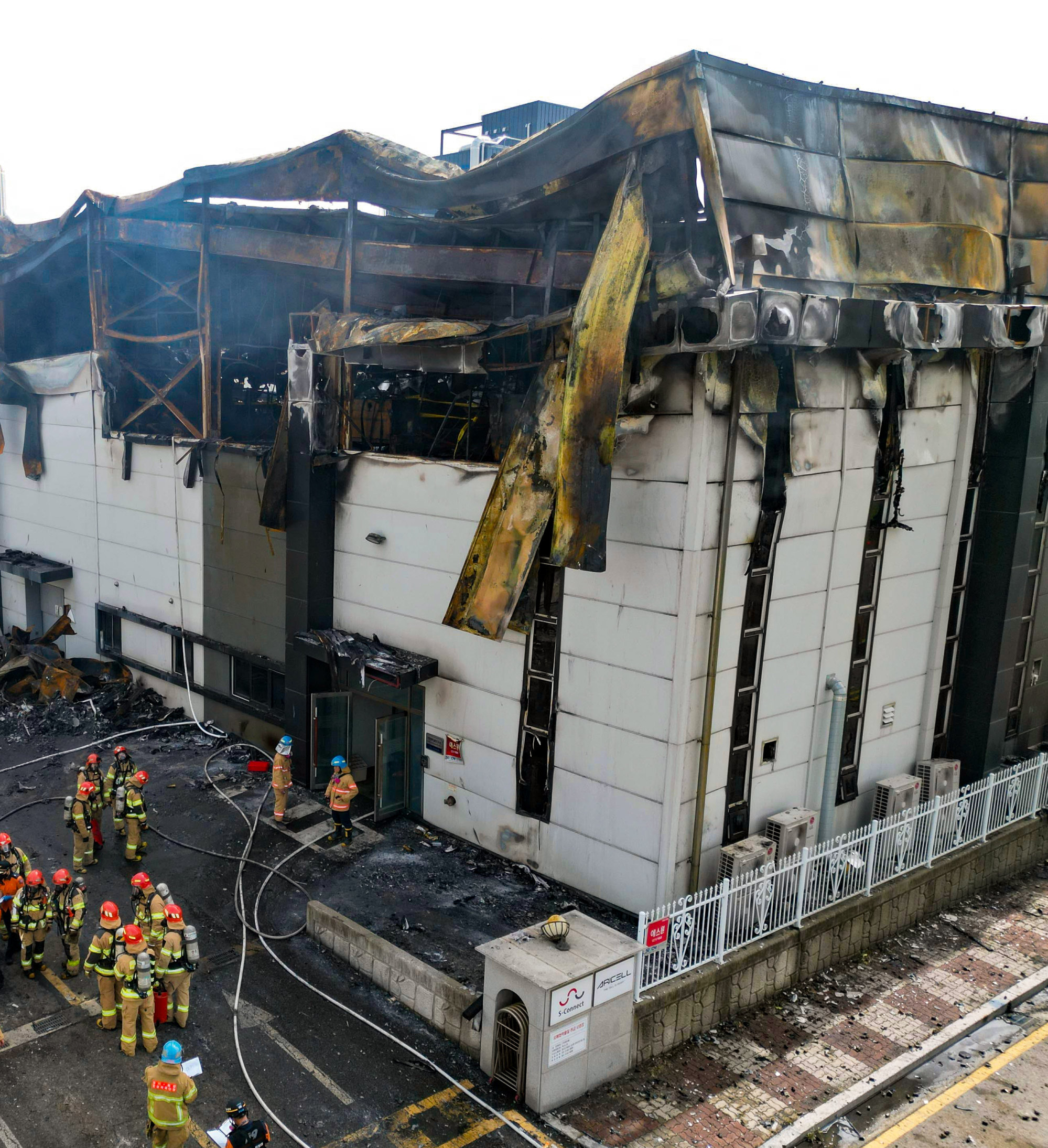Beijing’s envoy calls on South Korea to protect its workers after fire kills 17 Chinese
At least 23 people have been confirmed dead, according to the region’s fire department. The Chinese embassy has confirmed 17 of the victims who died were Chinese nationals. One Chinese citizen suffered minor injuries.
In an initial briefing, the fire department said the blaze broke out on the second floor of the building. The bodies of the victims – who had been inspecting and packaging finished battery products – were found on the same floor.
The exact cause of the fire could not be determined, but the fire department said “one of the battery cells exploded”.
“When the first firefighters arrived, the battery cells inside the factory exploded continuously and the fire spread rapidly, making it difficult to extinguish the fire,” said Kim Jin-young, head of the disaster prevention department at Hwaseong fire station, of the fire that took 4½ hours to put out.
A team of police, firefighters, forensic workers and other government officials will jointly investigate the fire site. Police will also request autopsies on the casualties to determine the cause of the death, according to Seoul-based Yonhap News Agency.
A Chinese worker in the factory told The Beijing News there were more than 100 workers in the factory, most of whom were Chinese women of ethnic Korean background aged between 30 and 40.
She told the newspaper she had not been trained in workplace fire procedure, and she had seen no fire drills at the factory during the month she had worked there.

South Korea is a leading producer of lithium batteries which are used in many items, such as in electric vehicles (EVs), mobile phones and laptops.
Chinese citizens account for the biggest foreign group in South Korea – 37.6 per cent of the total in 2023 – followed by Vietnamese and Thais.
A significant number of Korean-Chinese – known as Chaoxianzu – have legally or illegally entered South Korea since last century, working as low-paid labourers.
In 2008, some 12 Chaoxianzu died after a fire and accompanying explosions tore through a refrigerated warehouse in Icheon, near Seoul.
Also in Icheon, 38 construction workers died in 2020 in a fire at a warehouse that was being built.
In 2018, some 46 people died in the southern city of Miryang after a fire broke out in a small hospital that had no sprinkler system.
The South Korean consulate in Hong Kong and embassy in Beijing have been contacted for comment but had not responded by Tuesday afternoon.